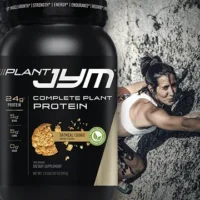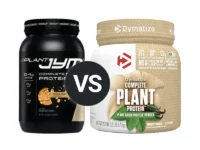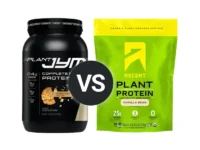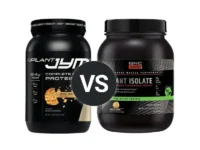Knowledge BaseYou're Questions Answered
What is a plant based protein powder?
Plant-based protein powder is a type of protein supplement made from plant-derived ingredients, such as peas, brown rice, hemp, soy, or a combination of these and other plant sources. Unlike animal-based protein powders, such as whey or casein, plant-based protein powders are free from animal products and are suitable for those following a vegan or vegetarian diet.
Plant-based protein powders are made by extracting protein from the plant source and processing it into a powder form. This allows for convenient and easy consumption, as the powder can be added to smoothies, baked goods, or mixed into liquids for a quick and easy protein boost.
Plant-based protein powders offer several benefits, including:
- Increased protein intake: Plant-based protein powders provide a convenient and easily absorbable source of protein that can help support muscle growth, recovery, and maintenance.
- Improved digestion: Many plant-based protein powders are easily digestible and can be less likely to cause digestive upset, such as bloating or gas, compared to animal-based protein powders.
- Increased nutrient intake: Many plant-based protein powders are enriched with additional nutrients, such as vitamins and minerals, that can support overall health and well-being.
- Increased fiber intake: Plant-based protein powders are often a good source of fiber, which can help support digestion, weight management, and blood sugar control.
- Environmentally friendly: Plant-based protein powders are a more environmentally sustainable choice compared to animal-based protein powders, as they do not require the use of large amounts of land, water, and other resources for animal agriculture.
When choosing a plant-based protein powder, it is important to consider the ingredients, quality, and nutritional profile of the product. Some plant-based protein powders may contain added sugars, artificial ingredients, or other harmful substances, so it is important to choose a product that is pure and free from these substances. Additionally, some plant-based protein powders may have a lower bioavailability compared to animal-based protein powders, so it is important to choose a product that is easily absorbable and contains a complete amino acid profile.
Related Questions
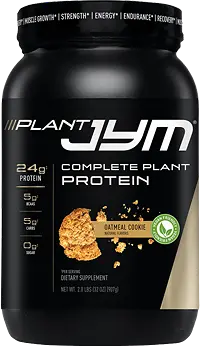
Your Answer
We are a participant in the Amazon Services LLC Associates Program, an affiliate advertising program designed to provide a means for us to earn fees by linking to Amazon.com and affiliated sites.

